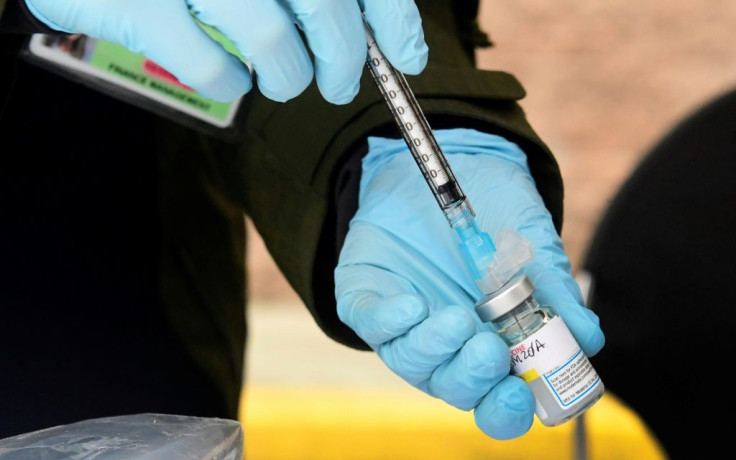Is COVID-19 Vaccine Safe To Get During Pregnancy? Facts You Should Know
KEY POINTS
- The CDC says COVID-19 vaccines can be given to pregnant individuals who are eligible for vaccination
- American College of Obstetricians and Gynecologists said the vaccine "should not be withheld" from pregnant people
- Experts advise that pregnant and breastfeeding individuals should consult their doctors and discuss its risks and benefits
As COVID-19 vaccines continue to roll out across the country, questions regarding their safety when administered to pregnant or breastfeeding individuals and those trying to get pregnant are increasing.
The Centers for Disease Control and Prevention (CDC) said there is "limited data" on whether the coronavirus vaccines that have been authorized for use under Emergency Use Authorization (EUA) affect pregnancy or fertility. But it stated that doses should be given to pregnant and breastfeeding individuals who qualify for vaccination.
The World Health Organization recommends that expectant mothers should get vaccinated if they are at high risk of catching COVID-19 or of developing severe COVID-19 disease.
However, the American College of Obstetricians and Gynecologists (ACOG) and the Society for Maternal-Fetal Medicine (SMFM) said COVID-19 vaccines "should not be withheld" from any pregnant individual who chooses to be vaccinated.
All health experts recommend that those who have concerns about the vaccine's effects should talk to their doctor.
While clinical trials for the currently available vaccines did not include pregnant or breastfeeding individuals before they were rolled out, ACOG said the preliminary studies for both the Pfizer-BioNtech and Moderna vaccines are "encouraging" and did not show "any adverse effects on female reproduction or fetal/embryonal development."
Harvard Health Blog pointed out some important things that those who are concerned with the vaccines' effects on certain groups should take note of. First, the mRNA vaccines do not contain any virus particles. Another is that the mRNA particles present in the vaccine will naturally be eliminated within hours or days after receiving a dose and thus are unlikely to reach the placenta.
As shown by other vaccines that are safe or even recommended for pregnant individuals, the immunity they gain from receiving their shots can cross the placenta and help protect the baby from the virus after delivery.
According to the CDC, the side effects of the COVID-19 vaccine, if they occur, would be the same whether or not the person receiving the doses is pregnant. The most common side effects, especially after the second dose, are fever, chills, tiredness and headache.
All individuals, including pregnant patients, who have a history of severe allergic reactions to previous vaccines or injectable medication are advised to see their doctor before receiving the COVID-19 vaccine.
CDC also indicated that although the actual risk of severe health effects that lead to ICU admission or death among pregnant individuals is low, expectant mothers who have contracted the coronavirus still have a greater chance of suffering severe illness compared to non-pregnant individuals of reproductive age. The risk of adverse pregnancy outcomes, such as preterm birth, is also higher for pregnant individuals with COVID-19 compared to those who have not contracted the virus.
For pregnant people who have already received their doses, the CDC still recommends that they continue following safety protocols. These include:
- Wearing a mask
- Staying at least 6 feet away from others
- Avoiding crowds
- Washing hands with soap and water for 20 seconds or using hand sanitizer with at least 60% alcohol
- Following CDC travel guidance
- Following quarantine guidance after exposure to COVID-19
- Following any applicable workplace guidance

© Copyright IBTimes 2024. All rights reserved.











